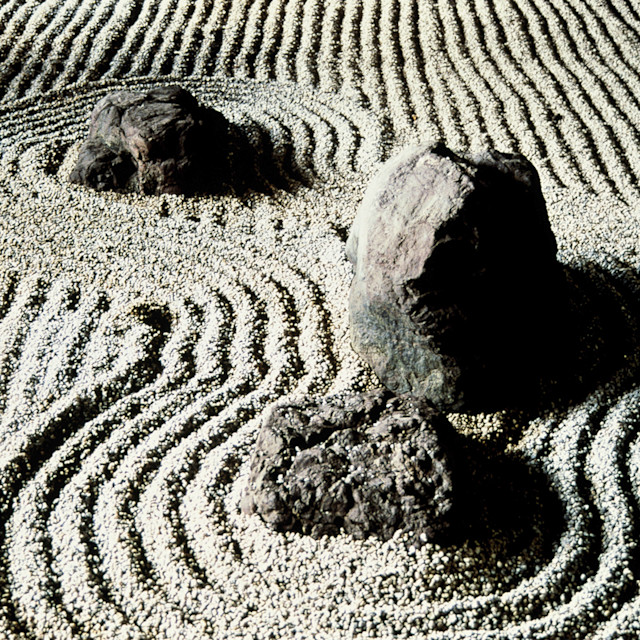In an age of constant noise, embracing silence has never been more important.
These days, carving out the time to go without phones, distractions, and noise is regarded as either a luxury, or a form of torture, depending on who you ask. Yet a new wave of silence-seekers are advocating for embracing the practice in a seemingly simple way: by going on a silent walk.
As with so many trends these days, a resurgence of interest in silence can be traced back to TikTok, where “hot girl walks” have now morphed into vlogged “silent walks” — one without conversation, music, or digital distractions. Mady Maio, whose video has been attributed with driving the viral trend, described in her since-deleted post that despite her apprehensions that her anxiety would make a silent walk impossible, after two minutes she found that “your brain just gets into this flow state…and suddenly, you can hear yourself.”
In reality, the practice of forcing oneself to be in silence is an ancient one that can be traced back to Buddhist teachings. Vipassana meditation is considered one of the oldest forms of silent meditation — introduced by Gotama the Buddha more than 2500 years ago, it draws attention to the interconnectedness of the mind and body, and is focused on creating a space for a self-exploratory journey that should achieve mental clarity.
But it is major environmental and cultural shifts that have made the pursuit of silence increasingly appealing, and increasingly challenging. To start, the world has become louder, and this rise in noise pollution has been tied to numerous health concerns. Eulalia Peris, the European Environment Agency’s environmental noise expert, shared on the agency’s blog in 2020 that, “we estimate that environmental noise contributes to 48,000 new cases of ischaemic heart disease…In addition, we estimate that 22 million people suffer chronic high annoyance and 6.5 million people suffer chronic high sleep disturbance.”
RELATED: Flip Your Negative Mindset
Then there is the digital noise. Thanks to our devices, we are all constantly bombarded with videos, music and voice notes, and even if we avoid the audible, we are overloaded with information at every digital turn. This constant source of distraction has impacted our attention spans — which, according to Professor Gloria Mark, has gone from an average of two and half minutes per piece of on-screen content in 2005, to 47 seconds in 2016 — and made it increasingly challenging for us to truly disconnect. Just look at the TikTokers who can’t resist filming themselves on their supposedly “silent” walks.
In his book, Silence: The Power of Quiet in a World Full of Noise, the Buddhist monk Thích Nhất Hạnh writes: “Stop the noise in your mind in order for the wondrous sounds of life to be heard. Then you can begin to live your life authentically and deeply.” This pursuit of a quieted mind and mental clarity is often the central draw of silent walks and meditations for contemporary converts. For London-based documentary filmmaker Clea Martin-Vargas, silent walks have been crucial to allowing her to reconnect with her inner voice.
“I used to like to be surrounded by music when I was anxious, wanting to process strong emotions or stimulate creative ideas,” she says. “But in the past year, I’ve found that I really need silence to actually clear my head and find my own thoughts. We’re all so oversaturated — you wake up and check your phone and you’re immediately inundated with other people's voices that invade your head. Now, I regularly go on silent walks where I leave my phone at home, and I find that I can really empty my mind and pay attention to the thoughts that come up.”
There is research to support the notion that listening to silence can have a positive impact on our brains. A 2013 Duke University study conducted on mice reported that when comparing their exposure to silence or different types of noise, they found that silence yielded the highest number of newly grown and sustained neurons in the hippocampus, the area of the brain associated with memory. The researchers noted that their study suggested that listening deeply in silence can induce a positive stress response, “eustress,” that stimulates this growth.
For some, feeling the benefits of embracing silence has encouraged a more focused approach. New York-based graphic designer Molly Sailors began attending silent meditation classes six months ago to help manage the stress and anxiety she was experiencing after going back to work full time. At her teacher’s recommendation, she is heading to a silent retreat at a Buddhist center upstate in a few weeks.
RELATED: How to Balance Self-Discipline with Self-Compassion
“I've had some pretty big revelations through meditating in interpersonal relationships and self-reflection has helped me get into the creative zone when working,” says Sailors. “Sitting in silence and focusing on nothing other than your body and your breath feels like a training session for your mind.”
New York-based Jessica Bolber has attended three silent retreats as part of her personal healing journey, and continues to find silent meditation deeply impactful.
“When you are profoundly immersed in the present moment, the world takes on a luminous quality,” she says. “The sky appears a deeper shade of blue, life feels immensely enriched as you savor each moment, and there's a noticeable decrease in the need to speak or interject your own thoughts.”
Due to our increased dependency on digital distractions and a constant stream of noise, the idea of being in silence can be intimidating, especially for those who experience anxiety. But for those looking to wean themselves off their reliance on noise, going on regular silent walks is a brilliant way to re-acclimate yourself to silence and see what that time with your own thoughts can bring up.
